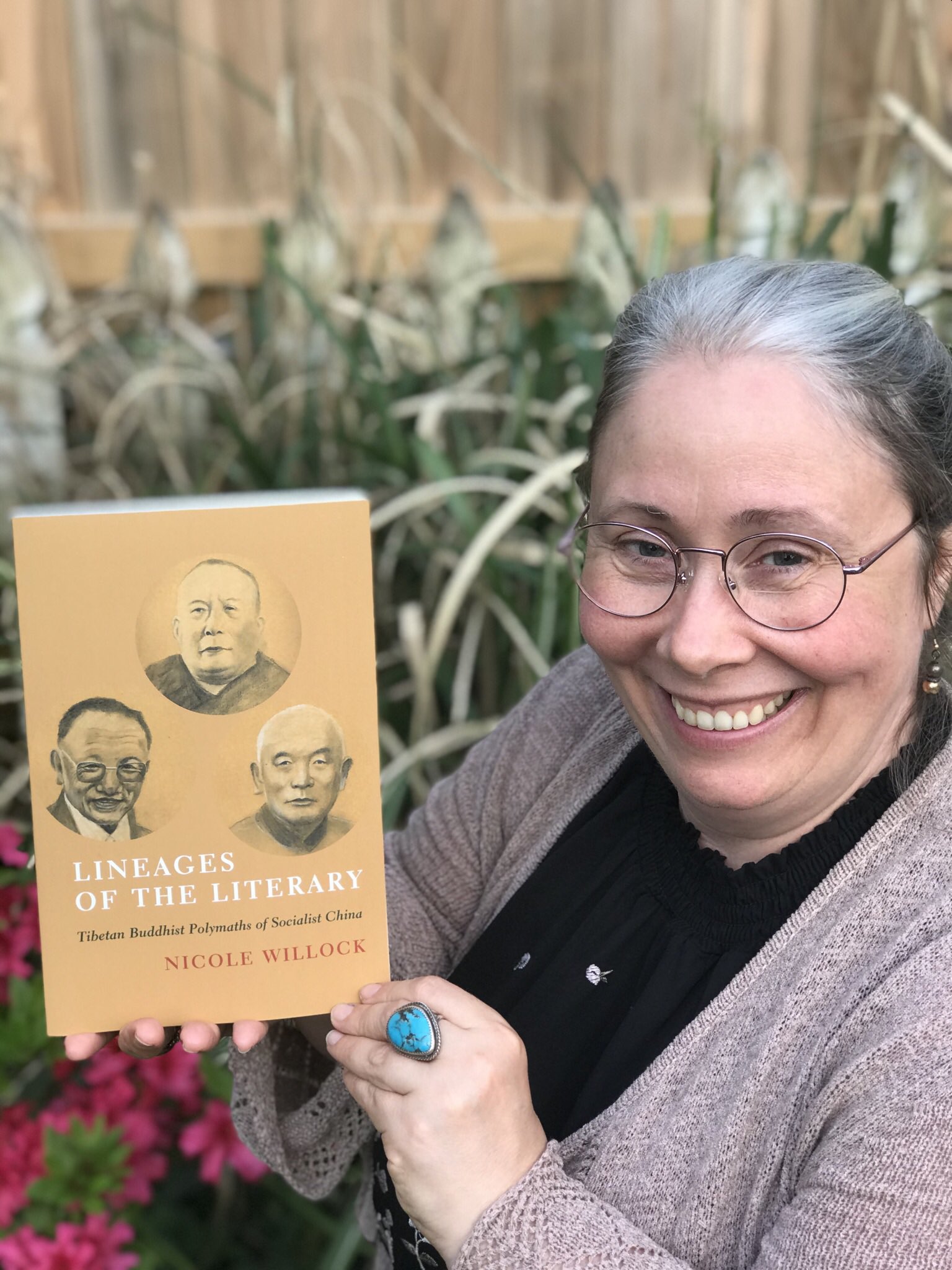In September 2021 the Inner Asian and Uralic National Resource Center partnered with the Department of Central Eurasian Studies and the Department of Religious Studies at Indiana University to host Nicole Willock, Associate Professor of Philosophy and Religious Studies at Old Dominion University and IU alumna, for a talk titled “Lineages of the Literary”. Willock’s lecture addressed the key points of her recent book, Lineages of the Literary: Tibetan Buddhist Polymaths of Socialist China (Columbia UP, 2021), a study of three important Tibetan Buddhist scholars collectively known as the Three Polymaths.
The three scholars, Tséten Zhabdrung, Mugé Samten, and Dungkar Lozang Trinlé, lived long and eventful lives which spanned the early years of Tibet’s integration into the People’s Republic of China, the turmoil of the Cultural Revolution, and its aftermath. In her talk, Willock explored the complexities of the Three Polymaths’ roles as both protectors of Tibetan religious knowledge and agents of Chinese state power in their positions as officially sanctioned writers and teachers at state-run universities. Willock cautioned against viewing the experience of these scholars through the lens of a misleading dichotomy between resistance and collaboration, instead drawing upon Saba Mahmood’s theory of moral agency to reconcile these seemingly incompatible roles.
In addition to talking about the lives of the Three Polymaths and the years of research that preceded the publication of her book, Willock also emphasized the importance of the interdisciplinary area studies and language training she received at Indiana University to her scholarly work. The event drew interest not only from Central Eurasian studies faculty and students, but also from members of Bloomington’s Tibetan diaspora.


